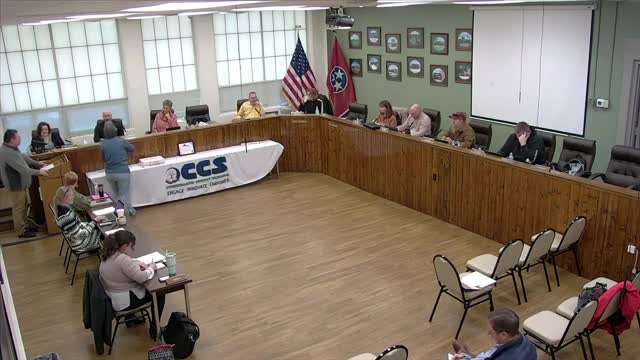Cumberland County technology director details device, cybersecurity and student-monitoring upgrades
Get AI-powered insights, summaries, and transcripts
Subscribe
Summary
Elba Farley, director of technology for Cumberland County Schools, told the board the district completed a 1:1 Chromebook roll-out, added cybersecurity infrastructure and expanded phone and camera systems, but faces rising recurring internet and software costs.
Elba Farley, director of technology for Cumberland County Schools, told the board at a Jan. 25 retreat that the district—s technology department has expanded device access, upgraded cybersecurity defenses and continues to maintain phones and camera systems across schools.
Farley, who said she has worked for Cumberland County Schools for 29 years and has led the technology department for 10 years, described the district—s 1:1 Chromebook program that provides fifth- and ninth-graders with devices, which are then given to students if they are kept in good condition for four years.
Among recent projects, Farley said the district completed a new phone system at North High School and deployed a cybersecurity appliance that monitors network traffic for attacks. She said the department manages districtwide services including Google email, classroom filtering systems (Dyno, Securly, Bark) and the HALO environmental detection sensors used for environmental events and to detect certain safety threats.
Farley said E-rate funds and category-2 support have been central to funding cabling, switches and internal networking hardware. She noted the district—s E-rate discount percentage is currently 80% but may move to 90% next year, which would reduce local costs for infrastructure purchases.
Board members asked about recurring internet costs and whether the district might switch away from its long-term provider, Education Networks of America (ENA). Farley said the statewide internet contract expires in June and multiple vendors may bid; she plans to coordinate with the director—s office and the board on selection because the contract covers substantial multi-year costs.
Farley also said some software currently paid for with one-time ESSER funds will need to be placed into the general fund next year, which could raise the technology budget for software licensing and services.
She invited board members to contact her office for tours or questions, noting the department—s staffing model puts technicians in each high school and rotates technicians among elementary schools to ensure coverage.
